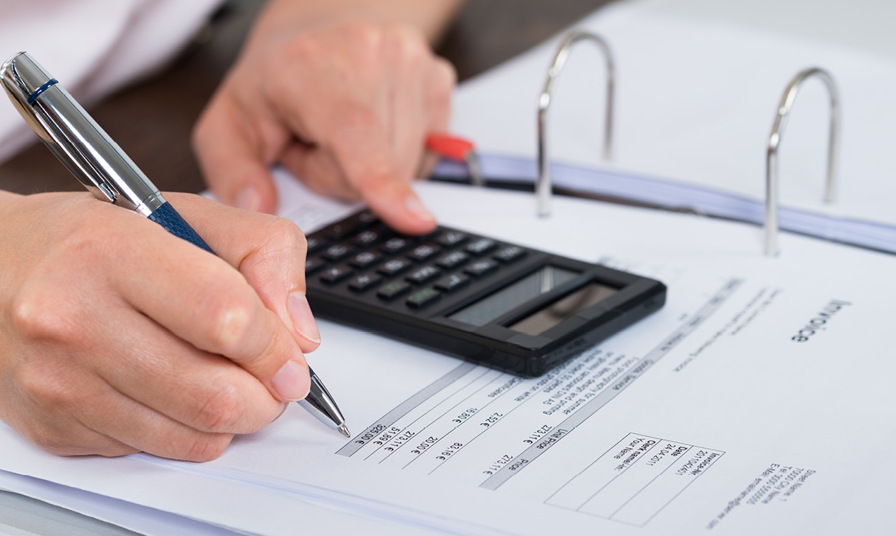Key features and benefits
- AAT Accounting Qualifications are a professional, highly respected sign of commitment and excellence in the industry
- A strong track record of delivering AAT qualifications
- Experienced tutors and high levels of support
- Study at one of the Top 3 Colleges in England*
The AAT Level 2 Certificate in Bookkeeping is a short qualification that gives you a thorough foundation in bookkeeping and basic accounting practices, including double-entry bookkeeping.
-
Overview
-
The AAT Level 2 Certificate in Bookkeeping is a short qualification that gives you a thorough foundation in bookkeeping and basic accounting practices, including double-entry bookkeeping.
Who should study the AAT Certificate in Bookkeeping?
The AAT Certificate in Bookkeeping is suited to people who:
- Have a natural ability with numbers
- Are already working in finance and looking to back this up with a qualification
- Want to work in bookkeeping in commerce and industry or as an independent professional
- Run their own business and need to do their own bookkeeping
Student Registration
Registering with AAT is essential if students wish to study an AAT qualification. Once students have registered and purchased access to their desired qualification, they will be able to:
- sit AAT assessments
- access AAT support resources to supplement the qualification learning and aid career progression.
AAT registration is a one-off fee, giving students access to the purchased qualification for the lifespan of the qualification. Additional fees will apply for sitting AAT assessments.
Prospective students wishing to register for the Level 2 Certificate in Bookkeeping are able to register online.
On registration, an email confirming the registration and an AAT registration number will be sent.
-
-
What will I study?
-
This qualification comprises two mandatory units:
- Introduction to Bookkeeping
- Principles of Bookkeeping Controls
A student completing this qualification will develop practical accountancy skills in the double- entry bookkeeping system and in using associated documents and processes. Students will be able to check transactions for accuracy, make entries in appropriate books and ledgers, and calculate sales invoices and credit notes. They will also cover more complex level bookkeeping procedures, including dealing with VAT, reconciliation and trial balances, and will develop their understanding of the relationship between the various accounting records.
Introduction to Bookkeeping
- Assessment method: Computer based assessment
- Marking type: Computer marked
- Duration of exam: 1 hour 30 minutes
This unit provides students with an understanding of manual and digital bookkeeping systems, including the associated documents and processes. Students will learn the basic principles that underpin the double-entry bookkeeping system and will learn that digital accounting systems are automating some of the stages in the process.
Students will learn how to check the accuracy of invoices, credit notes, remittance advices, statements of account and petty cash vouchers. They will know how to use these documents to make entries in sales and purchases daybooks, sales and purchases returns daybooks, and discounts allowed and received daybooks using account codes, as well as how to transfer those totals to the sales, purchases and general ledgers. They will learn that entering these into a digital bookkeeping system is the same process as entering the transactions manually, although the way they are entered will vary from system to system.
Principles of Bookkeeping Control
- Assessment method: Computer based assessment
- Marking type: Computer marked
- Duration of exam: 1 hour 30 minutes
This unit builds on the knowledge and skills acquired from studying Introduction to Bookkeeping and explores control accounts, journals and reconciliations. It takes students through a number of processes used in bookkeeping that help verify and validate the entries made. These processes enable the student to understand the purpose of control accounts and associated reconciliations. Students will also understand the use of the journal to the stage of redrafting the trial balance, following initial adjustments.
This unit covers procedures that are required to ensure bookkeeping is completed beyond purely entering or processing initial transactions, which will enable students to develop their understanding of the relationship between the various accounting records and consolidate their knowledge of double-entry bookkeeping.
Students will develop the ability to prepare the value added tax (VAT) control account as well as the receivables and payables ledger control accounts, including reconciliation with the receivables and payables ledgers. They will use the journal to record a variety of transactions, including the correction of errors. Students will be able to redraft the initial trial balance, following adjustments. They will learn to update the cash book following receipt of a bank statement, and also how to prepare a bank reconciliation statement.
This unit explores the knowledge required to complete these bookkeeping procedures both manually and digitally. While the student will not be expected to demonstrate the ability to use any specific accounting software, the unit will explain to them where digital accounting systems are automating processes they are learning. The skills and knowledge gained will enable students to understand the business environment and facilitate their comprehension of a digital accounting system. Reference to digital systems includes applications as well as both desktop and cloud accounting software.
-
-
Entry Requirements
-
This course is open-access and therefore no prior learning is required. We would recommend that students purchase their own their own calculator.
If you have been declared bankrupt or have had an IVA at any time this may affect your eligibility for AAT membership, please contact the AAT for further clarification.
What's included in the course fee? College Registration, Tuition, Tutorials and Computer Based Assessments (first attempts). Please note that there is a charge for re-sit assessments of £50.00. Assessments can only be re-sat twice, after which students will not be permitted to re-sit, in order to re-sit the assessment, students must pay to re-take the module (details of module fees are available by contacting the College)
What's not included in the course fee? Workbooks, Pocket Notes and Computer Revision Kit as appropriate. We would recommend all students attending on AAT courses at Blackburn College purchase a full set of Workbooks as a minimum.
The estimated cost for these learning resources are up to:
- Level 2: £100
- Level 3: £125
- Level 4: £150
- Level 2 Book Keeping: £40
The course fees above also exclude AAT Registrations Fees and the AAT Annual Student Membership Fee, which students organise directly with the AAT. Continuing AAT students pay the Annual Student Membership fee only.
-
-
How will I be assessed?
-
Students must successfully achieve the two mandatory unit assessments to achieve this qualification. The proportion of this qualification assessed by externally marked assessment is 100%.
All assessments in this qualification:
- are set and marked by AAT
- are computer based
- are time-limited
- are scheduled by training providers or assessment venues
- take place at approved training providers and assessment venues under controlled conditions.
-
-
What can I do next?
-
The skills developed by studying this qualification will enable a student to seek employment with confidence and/or to progress to the next level of learning.
A student completing this qualification will develop the underpinning skills required in all accountancy and finance roles. They will use bookkeeping skills to confidently perform accounting transactions and understand how to process financial information in accordance with set procedures and schedules.
This qualification can lead to further study in bookkeeping or accountancy or to employment as:
- a Clerical Assistant
- a Trainee Bookkeeper
- an Accounts Clerk
- a Finance Assistant
- an Accounts Administrator
-
-
For more information/enquire
Please complete our enquiry form and a member of the team will get back to you.
For more information about this course, contact our specialist team on 01254 29 25 00 or email business@blackburn.ac.uk

We are proud to be one of the Top 3* Colleges in England for A-Levels and Technical Courses.
*In the Government's latest achievement tables for learners aged 16-18.










